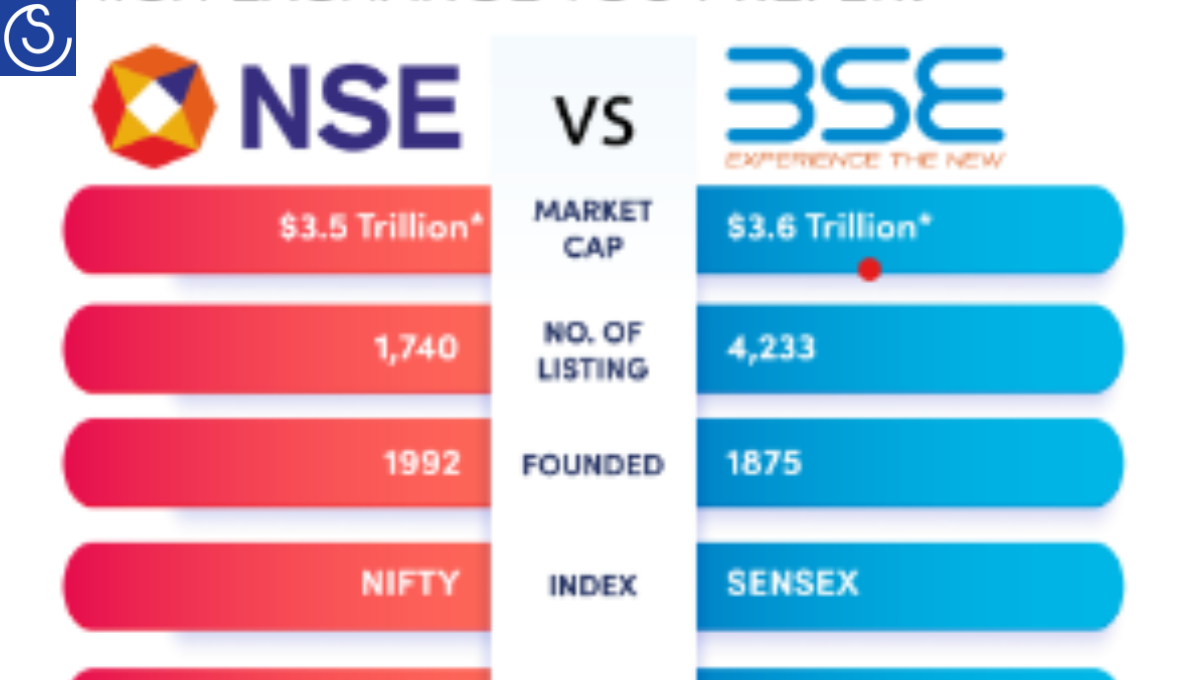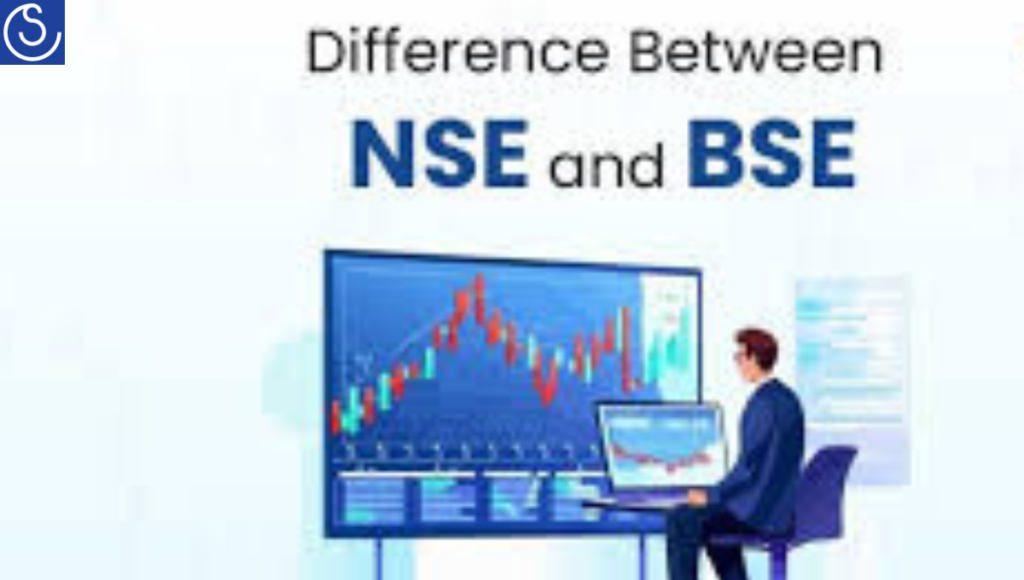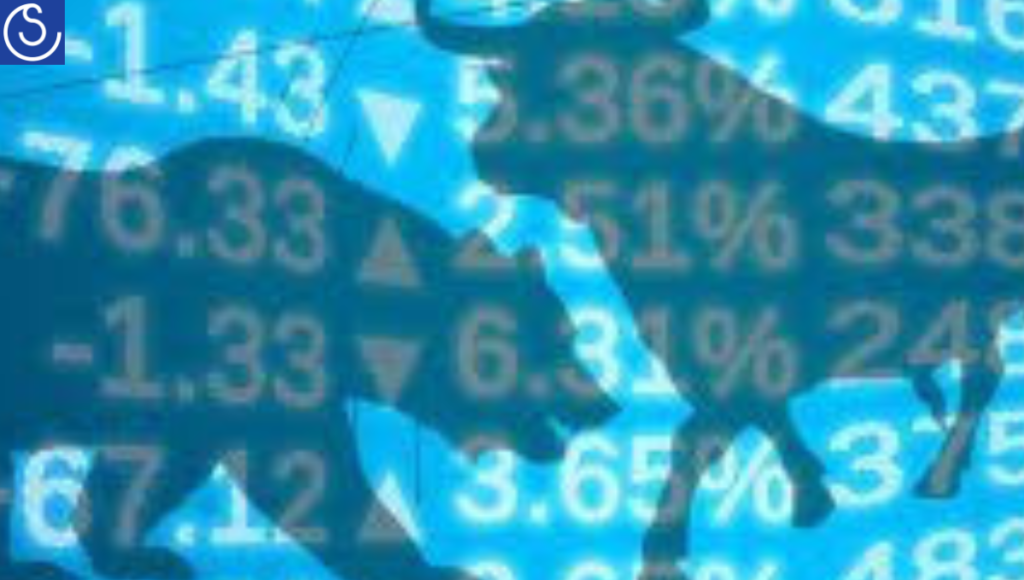Introduction: (10 Big differences between NSE & BSE)
Securities like bonds and shares are exchanged on a stock exchange by traders and investors in an effort to raise capital. Brokers or agents may or may not assist with the trade. It is a regulated and well-organized market place for financial transactions like share issue, purchase, and sale. The corporations are able to raise capital through the stock exchange. (10 Big differences between NSE & BSE)
The stock exchange’s real-time pricing information can assist investors or organizations planning investments in making important judgments. However, if listed firms intend to raise capital, they have to operate by specific rules and regulations set forth by the regulatory organizations.
Since the stock exchange serves as a venue for the sale of derivatives and security debts, it is crucial to the development of the national economy.
The two most significant stock exchanges in India are the NSE, often called the National Stock Exchange, and the BSE, usually called the Bombay Stock Exchange. It’s possible that we have heard of or encountered BSE and NSE at some point in our lives. A few of us might even be aware of their connection to bonds or stocks. But the majority of us wouldn’t be able differentiate between NSE and BSE equities. We will examine the distinctions between NSE and BSE stocks now that we have a basic knowledge of what NSE and BSE are. (10 Big differences between NSE & BSE)

What is NSE
The National Stock market, or NSE, is India’s newest stock market, having been established in 1992. It wasn’t until 1993 that it was officially recognized as a stock exchange. By bringing completely automated, electronic, and screen-based trading to India, they led the way in the trading business. Since 1995, they have offered a safe online platform for the trading of bonds and shares. The paper-based settlement system was gradually taken out of trade with help of the electronic trading system.

The NSE introduced the Nifty 50 benchmark index between 1995 and 1996. The 50 most highly liquid and continuously trading Indian firms listed on the NSE are tracked by the Nifty index, which was first released in April 1996. If you follow the Nifty 50, you’ll have a good understanding of both the stock market and the general economic trends. The greatest stocks for investing can be selected by investors. They also support businesses in their efforts to collect money.
What is BSE
The oldest stock exchange in Asia, and not only in India, is the Bombay Stock Exchange, or BSE. Since its incorporation in 1875, this company has provided high-speed trading options for currencies, derivatives, mutual funds, stock, and debt securities. Premchand Roychand established the organization, which was initially known as The Native Share & Stock Brokers Association until changing its name to BSE.
The Central Government of India did not recognize BSE as a main stock exchange until 1957. The Sensitive Index, also known as SENSEX, is the nation’s first stock index and the benchmark index of the BSE.
It monitors the top 30 major and well-known BSE-listed businesses. These businesses, which span across ten industries, are a good representation of the general trends in the stock market and the Indian economy.
10 Differences between the NSE and BSE
We will now talk about the top 10 differences between the NSE and the BSE:
| Explanation for the difference | NSE | BSE |
| Brief | The largest stock exchange in India is called the National Stock Exchange, or NSE. In India, they introduced in the totally computerized, screen-based, automated trading system. | Not only is the Bombay Stock Exchange (BSE) the oldest and first stock exchange in Asia, but it was also the first in India. They provide their clients with fast trading. |
| Date of Establishment | Although this institution was established in 1992, recognition came about in 1993. | Although the Central Government of India was the first to acknowledge the BSE as a premier stock market, the exchange was founded in 1875. |
| Ranking | Among the largest stock exchanges worldwide, NSE is ranked eleventh. | As a result, BSE is ranked tenth out of the largest stock exchanges worldwide. However, with NSE taking over, this status is under risk. |
| Benchmark Index | Out of the more than 1600 stocks that are listed on the NSE, the 50 biggest and most liquid equities are tracked by the NIFTY 50 benchmark index. | As the benchmark index for the BSE, SENSEX keeps track of the top 30 largest and most popular companies listed on the BSE. It is the nation’s first equity index. |
| Network | The NSE network covers more than 1500 cities. | On the other hand, just 450 cities make up the BSE network. |
| Companies Listed | Approximately 5300 companies are listed on the NSE. | There are about 5800 listed companies on the BSE. |
| Liquidity | Compared to BSE, NSE trades more volume, which results in higher liquidity. | The liquidity of BSE is lower than that of NSE. |
| Market Capitalization | NSE’s market capitalization is $2.27 trillion USD. | BSE has a market value of approximately USD 2.3 trillion. |
| Products | Securities lending and borrowing schemes, corporate bonds, equity, currency, mutual funds, traded funds, initial public offerings (IPOs), institutional placement programs (IPPs), and offer for sale | Equity, Money, Exchange-Traded Funds, Mutual Funds, Commodity Derivatives, Corporate Bonds, IPO, Offer for Sale |
| Vision | “Remain a leader, make a name for yourself internationally, and help people with their financial well-being.” | “Become the leading Indian stock exchange through the introduction of world-class technology, product innovation, and customer service practices.” |
NSE vs BSE: Which is better? (10 Big differences between NSE & BSE)
Even if NSE and BSE are very similar, we need to be very certain about which one to choose, particularly if you are new to investing. It is always preferable to invest on the BSE if you are a beginner in this industry; the NSE is reserved for more experienced investors. BSE is the greatest choice if you’re searching for a new firm to invest in. Still, the NSE is a better option if you enjoy taking chances or are a day trader.

What makes NSE better than BSE?
Comparing NSE to BSE, there are more listed stocks on NSE. But NSE is better than BSE in terms of liquidity. To put it simply, liquidity is the ease with which a stock can be converted into cash.
I want to sell in NSE, can I buy from BSE?
The basic answer to this is that, if you have a DEMAT account, you can purchase equities from the BSE and sell them on the NSE. But this raises the question of why someone would do it. Purchasing on BSE and selling on NSE involve a number of risk factors. Everyone would rather take security than a chance.
Which exchange are investors supposed to transact in?
Investors are free to select their investment locations based on their goals and needs. However, it is recommended for you to invest in BSE if you are an a beginner. In comparison to NSE, BSE also has a large number of listed stocks. But the NSE is the greatest option for you if you are an experienced investor or a day trader. Moreover, NSE offers more liquidity than BSE.
RECOMMANDED BLOGS:
(10 Big differences between NSE & BSE) 10 Big differences between NSE & BSE
(10 Big differences between NSE & BSE) 10 Big differences between NSE & BSE
10 Big differences between NSE & BSE 10 Big differences between NSE & BSE
10 Big differences between NSE & BSE 10 Big differences between NSE & BSE
